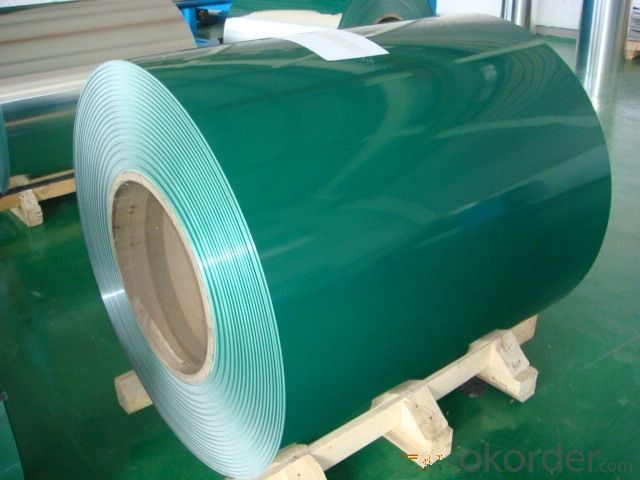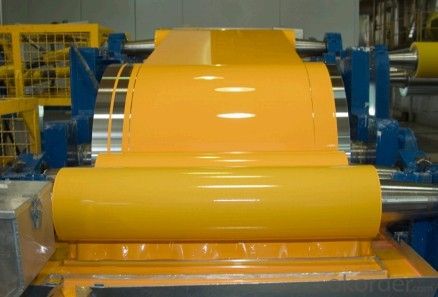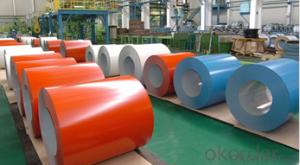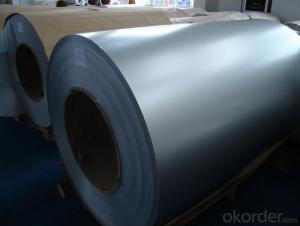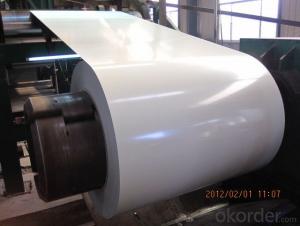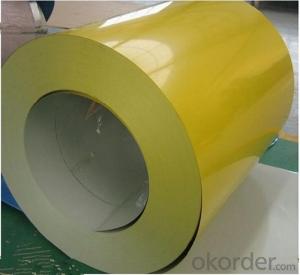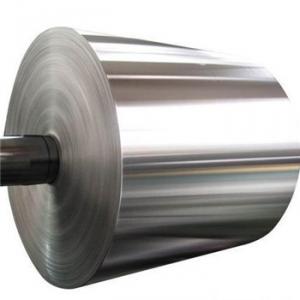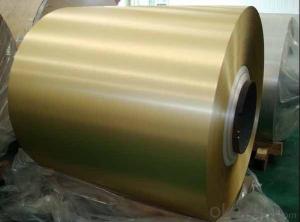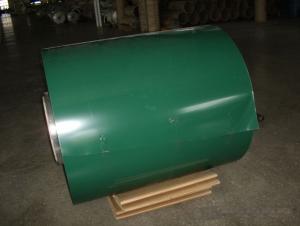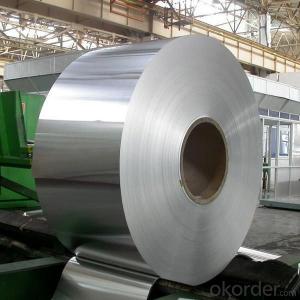Aluminum Copper Coil Coated Aluminum Roll for Nameplate Materials Production
- Loading Port:
- Shanghai
- Payment Terms:
- TT OR LC
- Min Order Qty:
- 2 m.t.
- Supply Capability:
- 60000 m.t./month
OKorder Service Pledge
OKorder Financial Service
You Might Also Like
Specification
Coated Aluminium Roll For Nameplate Materials Production
Alloy | 1050, 1060,1100, 3003 3004 3105 3A21 5005 5052 etc |
Temper | O/H12/H14/H1/H18/H32/H34/H36/H38//H111/H112/H116/H321/T6/T651/T3/T351 etc |
Thickness | 0.1mm to 6mm |
Width | 20mm to 3300mm |
Coil weight | 100kgs to 6 tons depends on actual requirement |
Core material | Aluminum or paper |
Coil inner diameter | 75mm, 150mm, 200mm, 300mm, 405mm, 505mm or as required |
Appplication | construction, roofing, decoration, lamping etc |
Package | eye to wall or eye to the wall for aluminum coil with wood pallet (wooded case also available) |
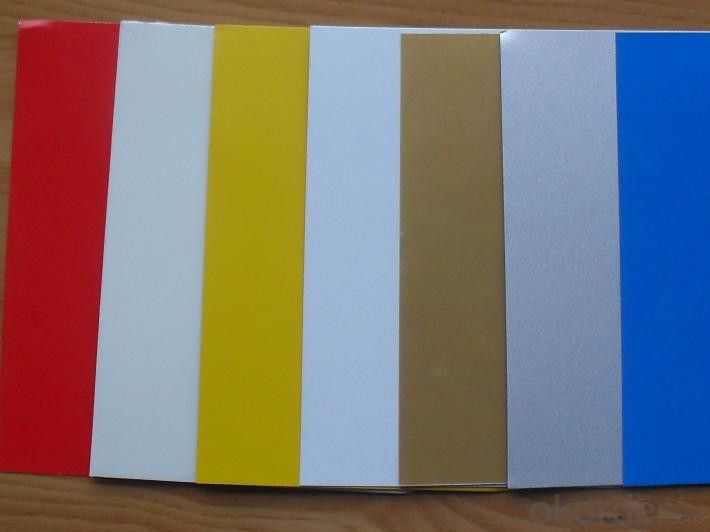
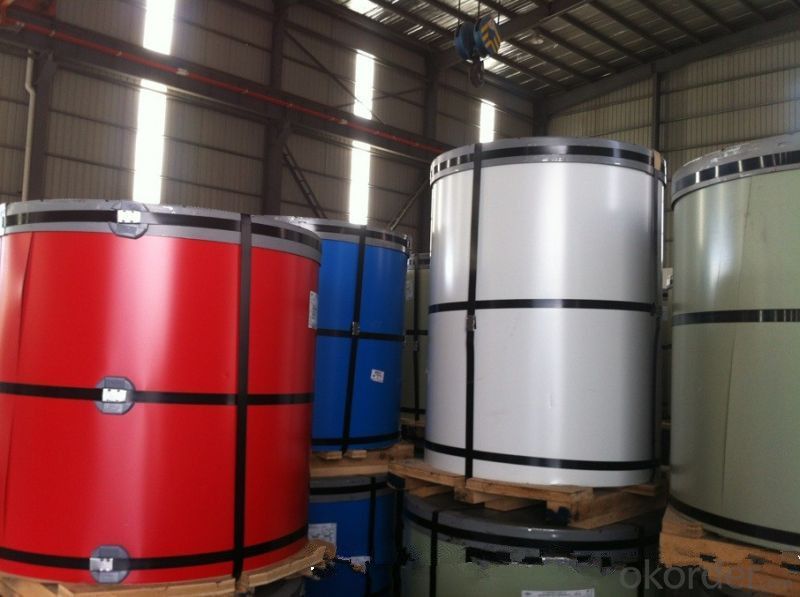
3) Glass curtain wall frame
4) Interior decoration
5) Elevator decoration
6) Signs, nameplate, bags making.
7) Automobile parts material
8) Office and Household appliances: HVAC equipments
9) The consumer electronics: mobile phones, digital cameras, MP3 .etc.
Coating varieties
Polyester Coatings (PE)
PE (polyester) coatings exhibit an excellent combination of hardness, flexibility, flow, appearance, and superior resistance to dirt retention in indoor and outdoor applications. These coatings are highly resistant to abrasion, metal marking, staining, and marring, and require minimal maintenance. Glazetech uses polyester paints which provide excellent colour and gloss retention properties.
Polyvinylidene Fluoride Coatings (PVDF)
PVDF (polyvinylidene fluoride) is a chemical resistant thick film barrier coating commonly used in architectural applications where both excellent appearance and substrate protection must be maintained over a long period of time. This coating is unaffected by most chemicals and solvents and has excellent wear and abrasion resistance. PVDF also has a high dielectric strength, excellent resistance to weathering and the ability to self extinguish.
FAQ
--Q: Do you provide free samples?
--A: Yes, free samples will be sent to you on freight at destination.
--Q: Can I get your latest products catalogue?
--A: Yes, it will be sent to you in no time.
--Q: What is the MOQ?
--A: 2 tons
--Q: What are your payment terms?
--A: We accept L/C, T/T.
--Q: What kinds of alloy can you supply?
--A: 1000 series: 1050, 1060, 1070, 1100, 1145, 1200
3000 series: 3003, 3004, 3105, 3104
5000 series: 5052, 5083, 5754, 5182
6000 series: 6061, 6063, 6062, 6063
8000 series: 8011, 8021
--Q: What’s the coating of top side?
--A: PVDF and PE coating
--Q: What kinds of temper can you supply?
--A: O-H112: O,H12,H14,H16,H18,H22,H24,H26,H,32,H34,H111,H112
T3, T4, T6
- Q: How to measure the thickness of aluminum coil at real time? In what areas can the sensor be used?
- I suggest that you use the laser displacement sensor for real-time measurement of the thickness of aluminum coil. ZLDS100 can exactly measure the change value of aluminum coil thickness through simple technique in the thickness measurement project, which can help judge the production phase and status.
- Q: How are aluminum coils coated for color matching and aesthetic purposes?
- The process of coil coating is commonly used to coat aluminum coils for color matching and aesthetic purposes. It is a continuous and highly automated process where a layer of paint or coating is applied onto the surface of the aluminum coil. To start the coil coating process, the aluminum coil is thoroughly cleaned to remove dirt, grease, and oxidation. This is done using chemical cleaning agents and mechanical scrubbing methods to ensure a clean and smooth surface. Once the cleaning process is complete, a primer is applied to the aluminum coil. The primer acts as a bonding agent, improving the adhesion of the subsequent layers of paint or coating. It also helps to prevent corrosion on the aluminum surface. After the primer is applied, the aluminum coil undergoes a series of rollers where the desired color coating is applied. This can be done through various methods such as coil coating, spray coating, or powder coating. Coil coating is the most common method, involving the application of a liquid paint or coating onto the metal coil surface. The coating is then cured or dried using heat to ensure proper adhesion and durability. In order to achieve color matching and aesthetic purposes, the paint or coating used is often customized to specific color palettes or customer requirements. This customization is achieved by using a wide range of pigments and additives that alter the color, texture, and gloss level of the coating. Furthermore, specialized coatings can be applied to aluminum coils to enhance their aesthetic properties. For example, there are coatings available that give the appearance of natural wood or stone, providing a more visually appealing finish. Overall, the process of coating aluminum coils for color matching and aesthetic purposes involves thorough cleaning, priming, and the application of customized paint or coatings. This ensures that the aluminum coils meet the desired aesthetics while also providing durability and protection against corrosion.
- Q: What are the safety measures one should take when using aluminum coils indoors?
- <p>When using aluminum coils indoors, it's crucial to ensure proper ventilation to prevent the buildup of gases that can be harmful if inhaled in large quantities. Always follow the manufacturer's guidelines for installation and operation. Keep the coils away from flammable materials and ensure they are securely fastened to prevent tipping or falling. Regularly inspect the coils for any signs of damage or wear, and replace them if necessary. Never use aluminum coils in enclosed spaces without proper exhaust systems, and always have a fire extinguisher nearby in case of emergencies.</p>
- Q: How are aluminum coils tested for surface cleanliness?
- Aluminum coils are tested for surface cleanliness through various methods and techniques to ensure that they meet the required standards. One common method used is the water break test. In this test, a clean water droplet is placed on the surface of the aluminum coil. If the water spreads out evenly and forms a continuous film without beading or breaking, it indicates that the surface is clean and free from any contaminants. Another method used is the solvent wipe test. In this test, a solvent-soaked wipe is gently rubbed on the surface of the aluminum coil. The wipe is then inspected for any dirt or residue that may have been picked up, indicating the presence of contaminants on the surface. Surface energy measurement is also carried out to test the cleanliness of aluminum coils. This involves measuring the surface energy of the coil using a contact angle measurement device. If the surface energy is high, it indicates a clean surface, whereas a low surface energy suggests the presence of contaminants. In addition, visual inspection is often conducted to check for any visible dirt, oil, or other foreign substances on the surface of the aluminum coil. This can be done using a magnifying glass or under specific lighting conditions to ensure thorough examination. Overall, a combination of these methods is used to assess the cleanliness of aluminum coils, ensuring that they are free from contaminants and suitable for further processing or use in various industries.
- Q: How do aluminum coils contribute to architectural design flexibility?
- Aluminum coils contribute to architectural design flexibility by offering a lightweight and durable material that can be easily formed into various shapes and sizes. This flexibility allows architects to create unique and innovative designs, including curved or intricate facades, roofs, and cladding systems. Additionally, aluminum coils can be coated in a wide range of colors and finishes, providing architects with endless possibilities to enhance the aesthetics of their designs.
- Q: How do aluminum coils contribute to the durability of roofs and facades?
- The durability of roofs and facades is greatly enhanced by aluminum coils, thanks to their inherent properties and design characteristics. Firstly, aluminum's resistance to corrosion makes it an ideal material for roofs and facades that are constantly exposed to harsh weather conditions. This corrosion resistance ensures that the coils remain unaffected by moisture, UV rays, and extreme temperatures, thus extending the lifespan of the entire roofing or facade system. Moreover, aluminum coils provide structural integrity to roofs and facades while being lightweight. This lightweight nature simplifies the installation process and reduces the load on the building's structure, which is particularly advantageous for larger structures. Despite their lightness, aluminum coils have high tensile strength, enabling them to withstand significant loads and pressure without warping or deforming. This strength enhances the overall stability and durability of the roof or facade, ensuring resistance against external forces like wind, snow, and hail. Furthermore, aluminum coils are highly malleable, allowing for easy customization during the manufacturing process. This flexibility enables the coils to be shaped and formed to fit various architectural designs, resulting in a seamless and aesthetically pleasing appearance. The ability to customize the coils also facilitates efficient installation, as they can be tailored to fit different dimensions, angles, and contours of roofs or facades. Additionally, aluminum is a non-combustible material, which makes it an excellent choice for roofs and facades in terms of fire safety. The non-combustible nature of aluminum coils greatly reduces the risk of fire spreading, providing an extra layer of protection to both the building and its occupants. In conclusion, aluminum coils significantly contribute to the durability of roofs and facades by offering corrosion resistance, lightweight yet high tensile strength, malleability for customization, and non-combustibility. These properties ensure that the roof or facade can withstand the test of time, harsh weather conditions, and external forces, making aluminum coils a reliable and long-lasting choice for any building structure.
- Q: Are aluminum coils suitable for construction purposes?
- <p>Yes, aluminum coils can be used for construction. They are valued for their lightweight, corrosion resistance, and high strength-to-weight ratio, making them ideal for applications such as roofing, facades, and structural components. Aluminum's malleability allows for easy shaping and forming, which is beneficial in various construction projects. It's also sustainable due to its recyclability, reducing environmental impact.</p>
- Q: What are the standard dimensions for aluminum coils?
- The standard dimensions for aluminum coils can vary depending on the specific application and industry. However, there are some commonly accepted standard dimensions for aluminum coils. In terms of width, aluminum coils typically range from as narrow as 4 inches (10 cm) to as wide as 60 inches (152 cm). The exact width can be determined by factors such as the intended use, manufacturing process, and customer specifications. Regarding thickness, aluminum coils are available in a range of thicknesses, typically measured in gauge or millimeters. Common thicknesses for aluminum coils can range from 0.018 inches (0.46 mm) to 0.25 inches (6.35 mm) or even thicker in certain applications. The length of aluminum coils can also vary, depending on the specific requirements of the customer or the industry. Coils can be supplied in standard lengths, such as 1000 feet (304.8 meters) or 2000 feet (609.6 meters), or they can be custom cut to a desired length. It is important to note that these dimensions are not fixed and can be customized based on the specific needs of a particular project. Industries that commonly use aluminum coils, such as construction, automotive, and aerospace, may have their own unique size requirements. Therefore, it is always recommended to consult with an aluminum coil manufacturer or supplier to determine the most suitable dimensions for a specific application or project.
- Q: Are aluminum coils resistant to impact damage?
- Yes, aluminum coils are generally resistant to impact damage. Aluminum is known for its high strength-to-weight ratio and excellent durability, which makes it less susceptible to impact damage compared to other materials. Additionally, aluminum coils are often used in various industries where they are exposed to various environmental conditions and handling processes, and they are designed to withstand such impacts without getting damaged easily. However, it is important to note that the level of resistance to impact damage can vary depending on the specific thickness, quality, and design of the aluminum coil.
- Q: Can aluminum coils be used for outdoor applications?
- Indeed, outdoor applications can utilize aluminum coils. Aluminum, as a material, possesses outstanding versatility and durability, enabling it to endure diverse weather conditions and temperatures. Its resistance to corrosion renders it suitable for outdoor environments that encounter moisture and humidity. Moreover, aluminum coils boast a lightweight characteristic, facilitating their transportation and installation within outdoor settings. Consequently, they find frequent usage in outdoor applications encompassing roofing, siding, gutters, and HVAC systems. Taken together, the strength, corrosion resistance, and longevity of aluminum coils establish them as a dependable option for outdoor applications.
Send your message to us
Aluminum Copper Coil Coated Aluminum Roll for Nameplate Materials Production
- Loading Port:
- Shanghai
- Payment Terms:
- TT OR LC
- Min Order Qty:
- 2 m.t.
- Supply Capability:
- 60000 m.t./month
OKorder Service Pledge
OKorder Financial Service
Similar products
Hot products
Hot Searches
Related keywords


